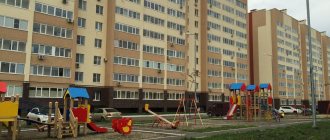Many gardeners in their particular SNT do not understand the essence of democracy, nor the legal procedure for resolving partnership issues, nor the conditions for the existence of gardening partnerships. They often try to solve their problems by shouting and insulting, as well as by complaining to all authorities about the objectionable board and chairman. The belief in a good king who is pleasing to everyone is still alive today, but if the rule is pleasing to everyone, then it simply does not work at all.
The main and key figure in any gardening non-profit partnership has always been the chairman of the board. The well-being of gardeners largely depends on his talent to organize the work of the board and the public organization as a whole, because only a normal chairman is able to stop theft and lawlessness in the partnership.
People are not born to be the chairman of a horticultural non-profit partnership, and the laws in SNT are somewhat different from the production or operational organization where they may have once worked. For many reasons, SNT chairmen do not have time to visit lawyers or search and understand laws on the search network, although they have many questions on the forums, in particular, about the official rights and responsibilities of the chairperson.
Elections and re-elections of the chairman of the SNT
The job responsibilities and rights of the chairman of the SNT are determined by the job description, according to which he is hired or dismissed for this position by decision of the board and in accordance with current legislation. The chairman is elected by the general meeting (or meeting of authorized representatives) for a period of two years. The chairman may have a secretary and a deputy, who hold this position until the next election and, in the absence of the chairman, at his direction, perform the duties of a manager. The secretary of the board maintains a card index of SNT members and owners who live on the territory of the partnership without being its members - home address, telephone number, information about land documents, family composition.
Members of the board relieve the chairman from his position only in certain cases:
- Upon a written statement from the chairman about the voluntary resignation of his duties.
- For regular refusal to hold board meetings if its members insisted on this in writing.
- If the chairman does not show up for work without a good reason for more than 10 days, and this fact is confirmed by acts of his absence during office hours and at board meetings, the administrative and administrative activities of the chairman for SNT employees were also not carried out during this period.
- The chairman can also be fired for activities that caused financial damage to the organization due to abuse of power for personal gain (this fact must be confirmed by the audit commission).
- If the chairman refuses to hold a reporting meeting within the time limits specified by law, and also does not systematically implement the decisions of general meetings, provided that they are completely legal. The same applies to board decisions.
- They can be fired if they refuse to provide the audit commission with the opportunity to check all the necessary documentation of the partnership.
This list can be supplemented or shortened only at general meetings. The chairman is obliged to submit to the board of the SNT, guided in his work by the charter and legislation of the Russian Federation (in particular, Article 66 “On gardening, gardening and dacha non-profit organizations of citizens”), as well as decisions of the general meeting and the board. In his work, the chairman also takes into account the regulations of local authorities, if they are related to the activities of the partnership, as well as court decisions, if they have entered into legal force.
Size
The legislation on gardening partnerships does not contain special rules regulating the amount of remuneration for the chairman of the SNT. However, since SNT is an employing organization, when determining the amount of payments, it is necessary to take into account the established standards on the minimum wage.
If the chairman is employed part-time, wages are calculated in proportion to the hours he worked. For part-time work, the usual working time is 4 hours, which corresponds to half the minimum wage.
Salaries may also be calculated on a piece-rate basis, in proportion to the duties performed. However, this form causes a number of difficulties in terms of recording the work done. In the case of the chairman, the result of his actions is not always obvious and can be taken into account. Therefore, it is used relatively rarely in practice.
In the case where the chairman works under a civil contract, the amount of remuneration under it is not limited. However, for such an agreement there is a risk of reclassification into a labor agreement (including, according to the chairman’s statement, in the event that relations between him and the rest of the gardeners deteriorate).
Therefore, in general, using this option is not recommended.
Main responsibilities of the chairman
The main responsibility of the chairman of the SNT is to carry out business activities in accordance with and within the limits provided for by the charter of the partnership and the federal law of April 15, 1998. No. 66-F3 (with additions). The chairman must know:
- Provisions of the legislation of the Russian Federation that regulate the economic and legal activities of SNT.
- Internal labor regulations of the organization.
- Labor protection rules and regulations, fire safety rules, civil defense and safety regulations.
- Technical and design documentation of the partnership, contractual documents on the supply of utilities.
The chairman himself observes and monitors compliance by all personnel (accountant, cashier, electrician, security guard) with internal regulations and job responsibilities, as well as sanitary standards and labor protection rules.
The chairman is obliged to carry out and ensure that all employees comply with the orders of the SNT board. As soon as the board or general meeting elects a chairman (with the corresponding resolution drawn up), the chairman can begin his official duties. Its powers are determined by the charter and Federal Law. If you disagree with the decision of the board, the chairman has the right to appeal it at the general meeting (meeting of authorized representatives). The manager acts without a power of attorney on behalf of the gardening partnership.
What is the deadline for appealing the results of the meeting?
The decision of the general meeting can be challenged in court within six months from the day when the person whose rights were violated by the decision learned or should have known about it, but no later than within two years from the day when information about the decision became publicly available for gardeners. (Clause 5 of Article 181.4 of the Civil Code of the Russian Federation)
Publication of information about the decision made by the meeting on the notice board, in the media, on the Internet, on the official website of the relevant body is considered publicly available, if such methods of posting are the established practice of communicating information to gardeners, as well as a link in the payment document sent to the gardener, challenging the decision. Public availability of information is assumed until the person whose rights are violated by the decision proves otherwise.
In other words, if the gardener was at a meeting whose decision he is trying to challenge and his signature is in the minutes of the meeting, then he only has 6 months to challenge the results of this meeting.
If the gardener was not at the meeting, then he has 2 years after publishing the results of the meeting on the Partnership website and posting the results on the notice board.
Job description for the chairman
What are the responsibilities of the SNT chairman?
- Chair board meetings with the right of first signature on financial documents and minutes.
- Conclude contracts, open bank accounts, issue powers of attorney.
- Constantly monitor the proper performance of their duties by all employees.
- Monitor the proper operation and safety of all SNT engineering equipment.
- Conduct a weekly inspection of the organization’s common property to identify its technical condition, efficient operation and degree of wear.
- Maintain contacts with representatives of energy supply and contractor organizations regarding the implementation of SNT contractual obligations. Organize access for specialists to engineering equipment.
- Monitor the fulfillment of obligations by energy supply organizations and contractors under contracts with the partnership, promptly inform the board of violations of contractual obligations.
- Conclude service agreements with third-party organizations in a timely manner, paying for their services at the specified rates.
- The official responsibilities of the chairman of the SNT also include representing the interests of the partnership in the district administration, sanitary supervision, state supervision, technological supervision to the extent of his competence.
- Take measures to eliminate emergency situations (power outage, accidents, etc.), draw up reports on emergency situations at the request of the owners.
- Take and record the readings of electricity meters on a monthly basis (if necessary, with the involvement of employees of the relevant services), transmit the readings of the meters to the accounting department of SNT and to energy supply organizations.
- Work with persistent defaulters to eliminate debt for maintenance and other services provided.
- Inform owners in a timely manner about restrictions (or shutdowns) of the services provided using announcements posted on information stands, and monitor information on the SNT website.
- Monitor statements of owners, record them and timely execution by SNT employees.
- Monitor the sanitary condition and cleanliness of the territory, including the container site.
- At least once a quarter, inform the board of the partnership about plans and the results of their implementation.
- Ensure the availability, safety and replenishment of working and technical documentation of SNT - plans, diagrams, drawings.
- Monitor reporting – accounting, statistical, technical.
- Monitor the activities of the chief accountant of a non-profit organization.
- Verify the correctness of payments to SNT owners.
- Together with members of the board, regularly monitor the condition of engineering equipment and external improvements in the partnership’s cottages, and take timely measures to eliminate any identified deficiencies.
- Twice a month, receive members of the organization, both on personal and general issues of SNT activities.
- Make purchases of material and technical resources that are necessary for the statutory activities of SNT.
- Store confidential information that the chairman must possess in accordance with his position (financial condition of the organization, personal data of members of the partnership).
- When performing official duties, be polite and correct with employees and land owners.
- If the employment contract and legislation define other obligations, strictly comply with them.
Why did individual gardeners enter into agreements with SNT if they planned to use common property?
Individual gardeners, just like gardeners who are members of SNT, have the right to use the common property of the partnership for a fee. Such property includes roads, power supply networks (substation, if only members of the partnership use it, wires, poles), water supply networks (water tower or tanks, pumps (well), pipes).
Previously, individual gardeners entered into agreements with SNT if they planned to use the common property of the partnership for their own purposes. Such agreements were called “On the procedure for using infrastructure facilities and other common property of a horticultural non-profit partnership when conducting gardening on an individual basis.”
Without contracts, individual gardeners did not have the right to use common property, since they are not members of the SNT, and common property is the property of the partnership.
The right to conclude such agreements with SNT was guaranteed in Part 2 of Art.
8 of the previously valid Law on Horticulture and Vegetable Farming (dated April 15, 1998 No. 66).
The agreement stipulated its name and subject - what it was concluded for, the rights and obligations of the parties, their details, the procedure for settlements and the date the agreement came into force. A seal was affixed, the parties signed the document and kept one copy for themselves.
In the event of conflict situations, for example, if an individual gardener was denied the use of a road, a correctly drafted agreement protected the parties. For example, a partnership could refer to the fact that an individual gardener did not pay the amounts stipulated by the agreement, and an individual gardener could refer to the obligation of the partnership not to interfere with him in the exercise of his rights.
If the partnership did not offer to conclude an agreement with the individual gardener (for example, due to the fact that he rarely comes to his garden plot), he had the right to file a claim in court to force SNT to enter into an agreement.
Responsibilities of the Fire Safety Manager
According to the law “On Gardening Associations,” between general meetings the SNT is governed by a board headed by the chairman of the SNT, whose fire safety responsibilities include fulfilling the requirements of fire safety legislation.
The general meeting of members of the partnership assigns responsibilities to the board and its chairman to carry out specific activities:
Appoint someone responsible for the implementation of the Fire Safety Rules and send him to study, pass exams and receive the qualification and certificate “Responsible for Fire Safety”.
Have in the partnership and constantly maintain documentation on compliance with fire safety rules to the required extent:
- decision of the board on the appointment of a person responsible for fire safety and approval of the Fire Safety Rules in SNT;
- decision of the board on the appointment of a person responsible for electrical facilities;
- decision of the board on the appointment of a person responsible for fire extinguishing means;
- decision of the board on the issue of approval of the list of vigilantes;
- fire safety instructions during gas-electric welding and other hot work;
- instructions on the actions of staff in case of fire and evacuation;
- log of fire safety training for employees.
What to do if SNT refuses to issue a reasonable estimate of the amount of contributions?
The partnership may not provide information to the individual gardener that does not concern him. But in this case we are talking about information affecting the obligation of an individual gardener to make contributions.
Expert opinion
Mikhailov Konstantin Kirillovich
Lawyer with 7 years of experience. Specializes in the field of civil law. Legal expert.
A justified calculation does not contain data on the expenditure of funds by the partnership, but indicates the advisability of establishing the amount of contributions. Therefore, based on the same paragraph.
6 hours 3 tbsp.
11 of the new Law on Gardening and Horticulture, SNT does not have the right to refuse to issue it to an individual gardener.
In case of refusal to provide a reasonable calculation, the individual gardener may contact the prosecutor's office in connection with the partnership's violation of the law on gardening and horticulture. He can also write a claim to SNT regarding the validity of the amount of contributions.
The information obtained may be useful to an individual gardener if he wishes to go to court.
Organization of notification and information support
At the entrance, next to the sign with the name of the partnership, there should be a board with the SNT diagram. A copy of the diagram is sent to the fire department. To notify about a fire, the association must have a public address radio center, the siren of which is duplicated by mechanical means - a bell or a rail.
An information board on relevant topics with operational information should be installed on the territory of SNT. Posters and signs are also placed in public areas. The responsibilities of the board and chairman include informing and monitoring the mandatory installation by members of the partnership of a barrel of water or a fire extinguisher at their cottages. The chairman must monitor the timely cleaning of roads for the free passage of fire fighting equipment, as well as the absence of flammable waste dumps and fuel containers on the territory. In persistently hot and windy weather, as well as when a special fire-fighting regime is entrusted to SNT, the chairman and the board carry out explanatory work on fire prevention and actions in case of fire, and organize free patrolling by volunteer fire fighters.
Examples from judicial practice
Below we give several examples when civil, administrative or criminal liability arises for the leaders of associations:
- The plot is divided into shares. The chairman and the accounting department assigned the letters “a” and “b” to each owner’s plot number and issued personal membership books. They began to count each share as an independent plot and take membership and target fees from each.
- The chairman kept records of neglected (uncultivated) land plots and independently distributed them to new citizens.
- There are two chairmen working in the organization at the same time, and each of them collects membership fees from some land users.
- At the general meeting, a decision was made that was contrary to the law. The chairman complied with this decision. By the way, in this case he bears personal responsibility and the amount of damage can be recovered from him personally in full.
- During the admission of new members to SNT, unreasonable money and an entrance fee are taken (starting from 2021).
- Debts on targeted contributions are paid off from membership fees.
- The chairman or his entourage issues knowingly false certificates.
- Improper storage of the seal led to the illegal hiring of a number of employees.
- Illegal dismissal of an idle employee.
- The long-established association does not have places to place garbage collection containers. The chairman organized unauthorized places outside the border of the SNT territory (in the forest, in the field, etc.).
- The puhto (garbage dump) was placed in violation of permissible standards (less than the established footage from the land user's site).
- The fire reservoir does not meet the requirements of the State Fire Safety Inspectorate. It is worse if it is simply drawn on the general plan, but in fact it does not exist (for example, there is nowhere to organize it due to the dense development of the territory according to the old standards).
- Multiple fines for failure to comply with government regulations.
- Non-payment of taxes, improper organization and incorrect accounting.
- Due to the personal (illegal) position of the chairman, it is impossible to re-register the documents of SNT members administratively; one has to go to court.
- Refusal to issue copies of certain documents.
- Forgery of documents.
- Illegal admission of “newcomers” into members of the association.
- Lack of concluded agreements with new land owners and shifting the financial burden to existing members.
- Falsifying decisions of general meetings, drawing up illegal minutes and other documents.
- Postscripts.
- Submission of false information to registration authorities.
After reading such a list, maybe someone will stop wanting to be chairman. You shouldn't think like that. You just need to get your documentation and your knowledge in order.
Read the rights of SNT at the link
Actions in case of fire
In the event of a fire, the chairman or members of the board must immediately call the fire department and also announce the fire by all means of warning (radio, bell, etc.). It is necessary to organize a meeting and escort of fire trucks to the fire. The chairman must take measures to rescue people and remove them from the fire zone with the help of a fire brigade. It is also necessary to remove strangers from the area.
Before the arrival of professional firefighters, it is necessary to begin fighting the fire with the help of your own fire brigade (in accordance with Law No. 100-FZ of May 6, 2011).
Rights of the chairman of the partnership
In addition to the duties, the chairman of the SNT also has the rights:
- Represent the interests of SNT in government agencies and local governments.
- Resolve personnel issues - hire employees, fire those who do not correspond to the position. In accordance with existing legislation, take punitive and reward measures against employees.
- Give employees instructions that must be followed.
- Suspend employees from work in case of gross violation of internal regulations, job responsibilities, sanitary standards, labor protection and fire safety rules.
- To perform your official duties, use the information received from members of the board.
- Use equipment, materials and supplies provided by the partnership.
- The manager has the right to compensation for expenses incurred during the performance of official duties, previously agreed upon with the management board.
- Receive from the owners of the partnership copies of documents establishing title and confirming their rights to land plots.
- Petition before the general meeting (or board) to exclude debtors from members of the organization.
- In accordance with the charter and laws of the Russian Federation, take other measures of influence against land owners who violate the charter, building codes and other provisions of the law.
- The chairman has the right to polite, respectful and correct attitude of employees and members of the partnership.
- If the current legislation and labor charter establish other rights for the chairman, then the manager of the SNT also has the right to them.
Why did they change the procedure for using common property?
Previously, according to the law, individual gardeners who wanted to use the common property of the partnership were not required to enter into agreements with SNT. It was their right.
And at the same time, they could not use the common property without concluding such agreements. Accordingly, in practice it was a question of the obligation to conclude contracts, although according to the law this was just a right 3 .
Questions about the rights and obligations of individual gardeners had to be resolved in court, since each case is always individual.
Expert opinion
Mikhailov Konstantin Kirillovich
Lawyer with 7 years of experience. Specializes in the field of civil law. Legal expert.
This created a contradictory situation. Some courts believed that individual gardeners are obliged to enter into agreements with the partnership, because in any case they have to use the common property of SNT, and the agreement implies payment.
Accordingly, if there is no contract, then there is no payment. The agreement in this case confirmed the exercise by the individual gardener of his right to use common property.
Without concluding an agreement, the individual gardener had no right to use this property.
Other courts, on the contrary, came to the conclusion that there was no such obligation: if one of the individual gardeners does not need public property, why should he then pay like the rest?
The contradictory situation was resolved by the new Law on Gardening and Horticulture.
What is he responsible for?
The SNT manager is responsible for:
- organization of office work in SNT,
- accounting and storage of documents.
- correctness of concluded contracts,
- proper maintenance, operation and safety of property,
- timely and complete fulfillment of the terms of all contracts, making payments (together with accounting).
In particular, the chairman pays for the total electricity consumption according to a common meter. This amount is offset by the total readings of individual meters, so the job responsibilities of the SNT chairman also include issues of electricity control. When changing the meter from the owner of the site, he is obliged to take the readings of the old meter on the day of replacement and the readings of the new one on the day of installation, and the chairman must be sure that the meter is technically in good working order, that is, it has been tested by the power supply. It is strictly prohibited to charge members of the association at rates exceeding the amount established by the Energy Resources Commission (due to losses in wires, idle transformer, theft). Such activity entails criminal and administrative liability.
The power supply is stopped in the following cases:
- poor condition of electrical wiring,
- violations of electricity metering schemes,
- connecting pantographs past the meter,
- lack of access for officials to check the condition of electricity consumption devices,
- late payment for services.
Disconnection is carried out after a warning and if the offender has not eliminated the problems on time. For other violations of the charter, for example, non-payment of membership fees, the board and chairman do not have the right to turn off electricity as a measure of influence on the defaulter.
If a gardener does not want to pay fees, will he have to go to court?
If a conflict arises regarding the payment of contributions and penalties, the issue can be resolved immediately in court. For example, an individual gardener has the right to go to court if the amount of contributions is too high. But the court will take his side only if he proves that he is right. This can be done as follows.
An individual gardener must file a statement of claim in which he must request a reduction in the amount of contributions. Evidence must be attached to it.
This is a reasonable calculation of the amount of contributions that should be received from SNT, as well as an explanation for it: why an individual gardener considers it unreasonable - perhaps there are errors and inaccuracies in the calculation. If they are revealed in court, the amount should be reduced.
Thus, an individual gardener must find out how the amount of contributions is calculated, by what formulas and on what basis. These explanations can be written in the statement of claim - the court will consider them as evidence (explanations of the parties).
They can also be written on separate sheets of paper, which will be submitted as an appendix to the statement of claim. But then it is important in the claim to unambiguously refer to this application so that the court and the other party to the dispute can immediately find the disputed information.
Other important evidence may be SNT cash receipts, checks, receipts and other written documents confirming the transfer of contributions.
Witness testimony, audio and video recordings in this case can also be taken into account by the court. However, in such cases, a large role is traditionally given to written evidence that clearly confirms the fact of payment of contributions.
To obtain information confirming the payment of contributions, the court may request information by sending requests to the bank and other authorities. But this is advisable if an individual gardener cannot independently obtain the requested information.
For example, due to the loss of checks confirming the transfer of the amount of contributions to a current account in SNT by non-cash method. It will be very difficult to obtain this information out of court, especially if we are talking about long-past periods.
Responsibilities of the Audit Commission
The Audit Commission is a permanent body of the SNT, elected at a general meeting of members of the partnership for financial and economic control over the activities of the association, its board and other officials.
The commission carries out its activities in accordance with the charter of the partnership, as well as relevant regulatory documents.
Members of the commission consisting of three people are elected for one to two years at a general meeting by open or absentee voting from among persons with higher (or basic higher) education - legal or economic and experience in the economic and legal sphere. A commission of two people is also eligible. If one is elected, he is called the Auditor. Any member of the partnership may be elected to the audit committee. A professional owner who permanently resides on the territory of the SNT, but is not a member of it, is approved separately.
The following may not be members of the audit commission:
- Chairman of the Board;
- board members and their relatives;
- debtor owners;
- persons with criminal records and disqualifications;
- someone by proxy from a member of SNT.
If other governing bodies are also elected at the general meeting, then the audit commission is appointed after them.
Functions of the Audit Commission:
- Checking the financial documents of the partnership, inventory, constituent documentation, minutes of meetings and orders of the chairman and board, comparing the results with accounting data.
- Verification of the legality of contracts and other transactions on behalf of the partnership.
- Checking the prepared balance sheet, annual report, profit distribution, reports for the tax office, statistics and government agencies.
- Assessing the validity of cost and income estimates.
- Checking the actual availability of property and funds.
- Verification of the intended use of funds and property.
- Checking the validity of financial transactions, completeness and timely payment of taxes.
- Checking the reasonableness of costs for capital expenditures and ongoing activities
- Checking the financial condition and control of debt of SNT members.
- Checking payroll calculations for individuals.
After checking the financial activities, the commission draws up a conclusion assessing the correctness of the documentation (reports, balance sheets, declarations). An audit of the financial activities of the association is carried out once a year. The results of the conclusion are presented to the general meeting only after the chairman and members of the board have familiarized themselves with them. The commission must promptly communicate to the board (in writing) the results of all inspections seven days before the general reporting meeting. For complaints from members - within 10 days.
When compiling a report, the commission develops precise recommendations for correcting deficiencies. The commission has no right to disclose all confidential financial information (personal data of members of the organization, its financial condition). In the absence of an external audit, the conclusion is made on the annual report of the partnership and the approved budget with salary accruals. The powers of the audit commission also include proposals to the general meeting on bonuses based on the results of the audit for the board and the audit commission to improve motivation in work.
The duties of the chairman of the audit commission include receiving members of the SNT once a month (a specific date is determined).
Responsibilities of the chairman and the board in relation to the audit commission:
- During the period of inspections, the board provides all possible assistance in the work of the auditors, placing at their disposal an office, office equipment, and office supplies.
- The chairman includes the nominations of owners who submitted an application to the ballot if the agenda of the meeting includes the issue of choosing an audit commission.
- The chairman of the board of the partnership is obliged to provide the auditors with the documents that were indicated in the decision to conduct the audit or give a written explanation of their absence.
- At the written request of any member, the board is obliged to familiarize him with the findings of the commission and provide copies of the conclusion.
- When preparing the general reporting annual meeting of members of the association, the board and chairman are required to distribute to all their members the conclusions and reports of the audit commission.
Registration of participants
Registration of meeting participants is a good reason to update the data on the register of gardeners, so in the lists for registration of participants you can request information for maintaining a register of gardeners. If the register already has all the data on the meeting participant, then you can ask whether there have been changes and, if changes have occurred, record them.
When registering, an appendix to the minutes of the meeting is filled out, which indicates the full name of the participant and the participant signs. This sheet is then attached to the minutes of the meeting. If a representative of a meeting participant participates in the meeting, it is better to make a copy of the power of attorney. The full name and registration address should be checked against the participant’s passport or other identification document.
If issues are resolved at the meeting, the discussion of which requires the invitation of persons running a business without participating in the Partnership, then when registering participants in the meeting, 2 registration lists should be filled out, one should contain members of the Partnership, and the other should include persons running a business without participating in the Partnership.







